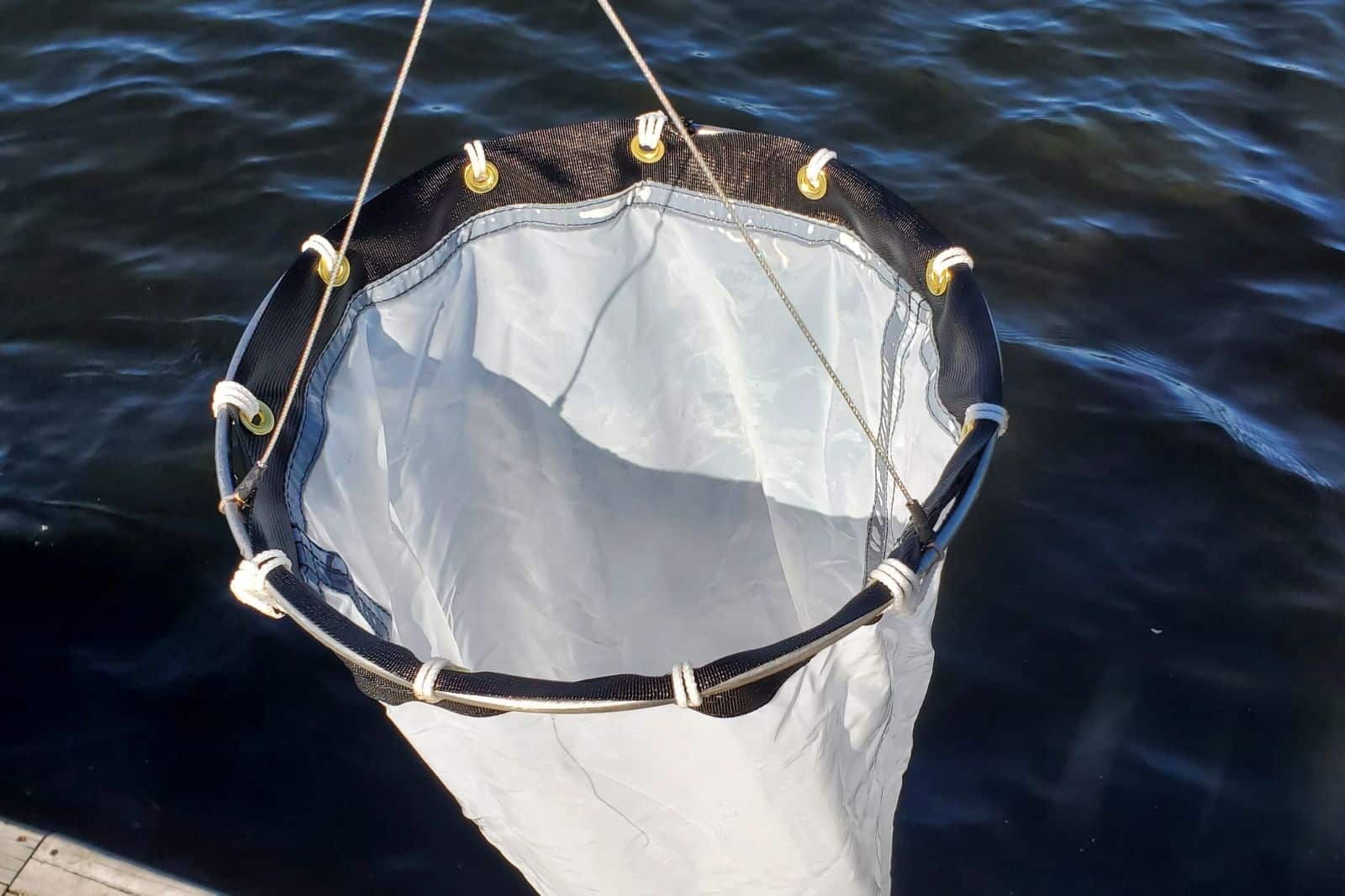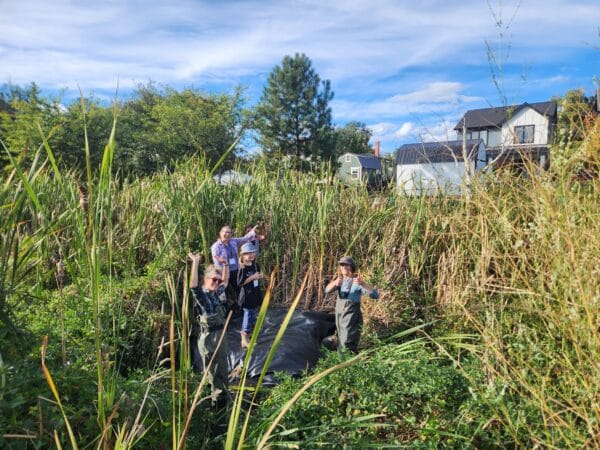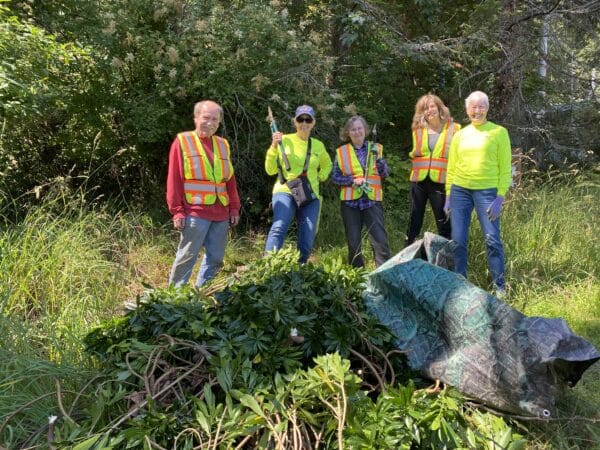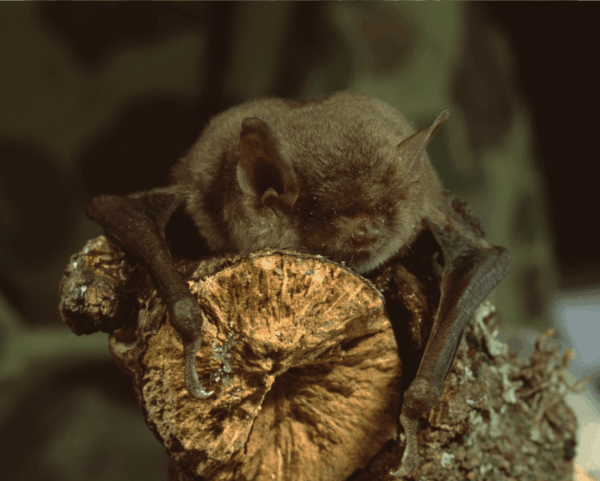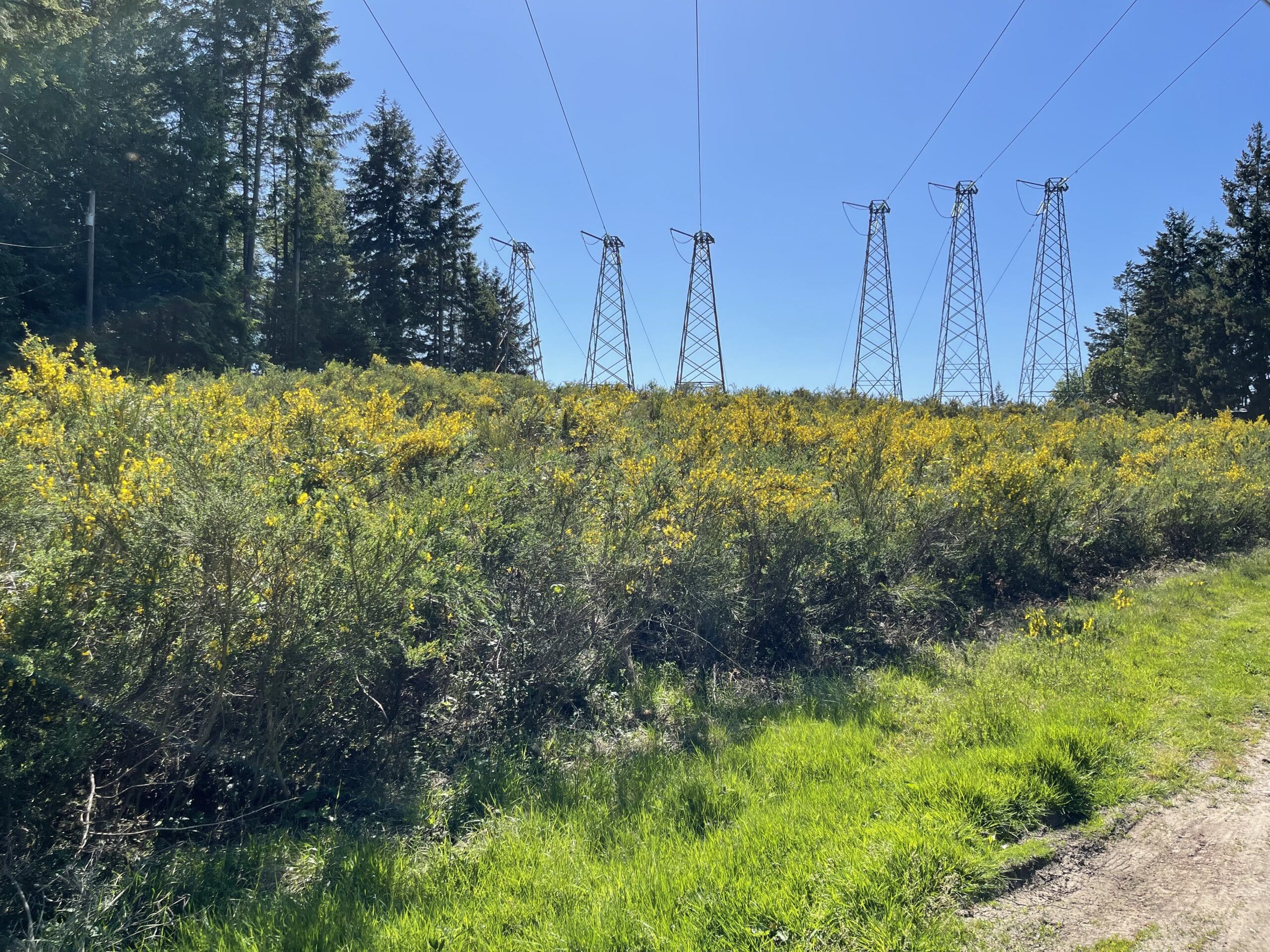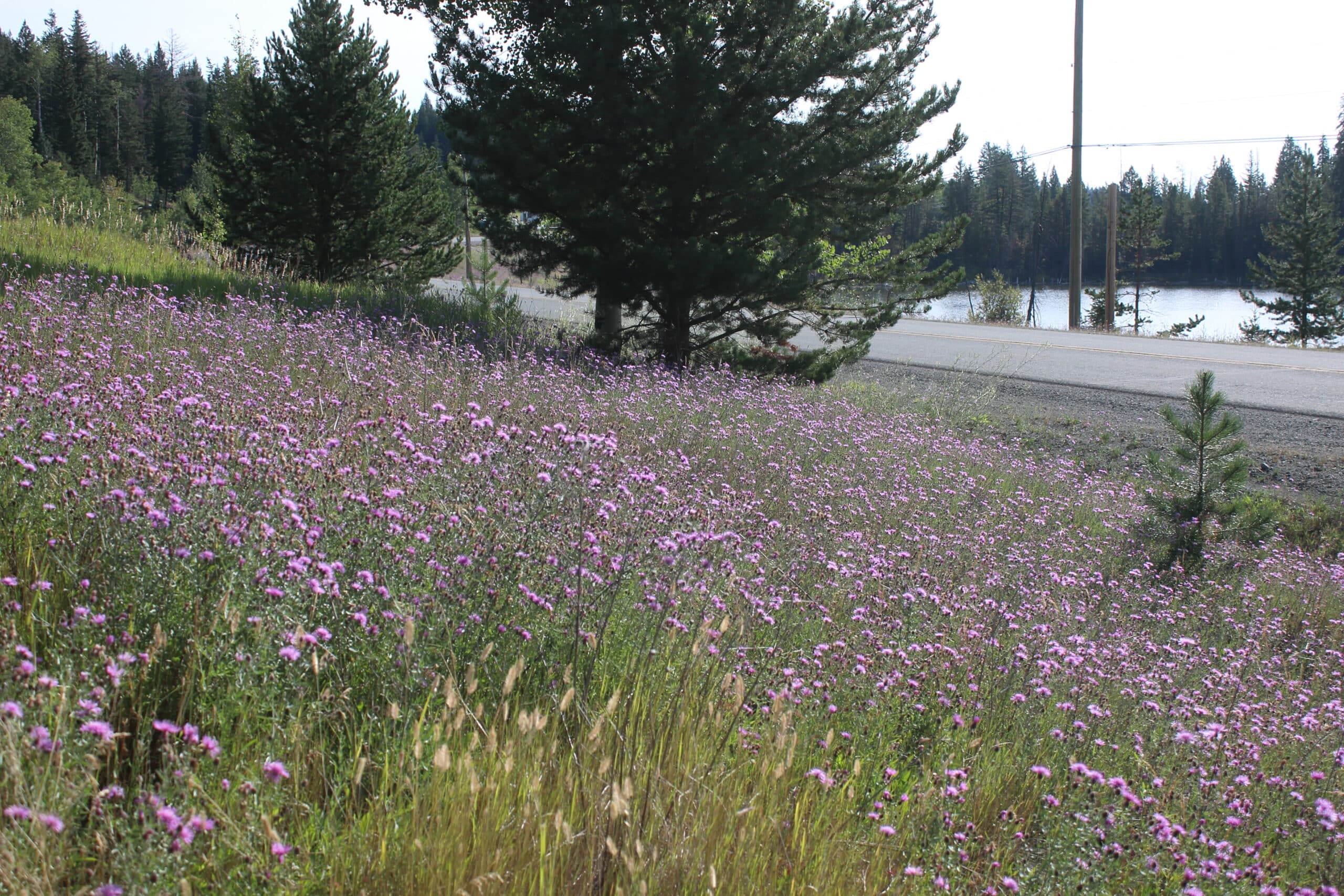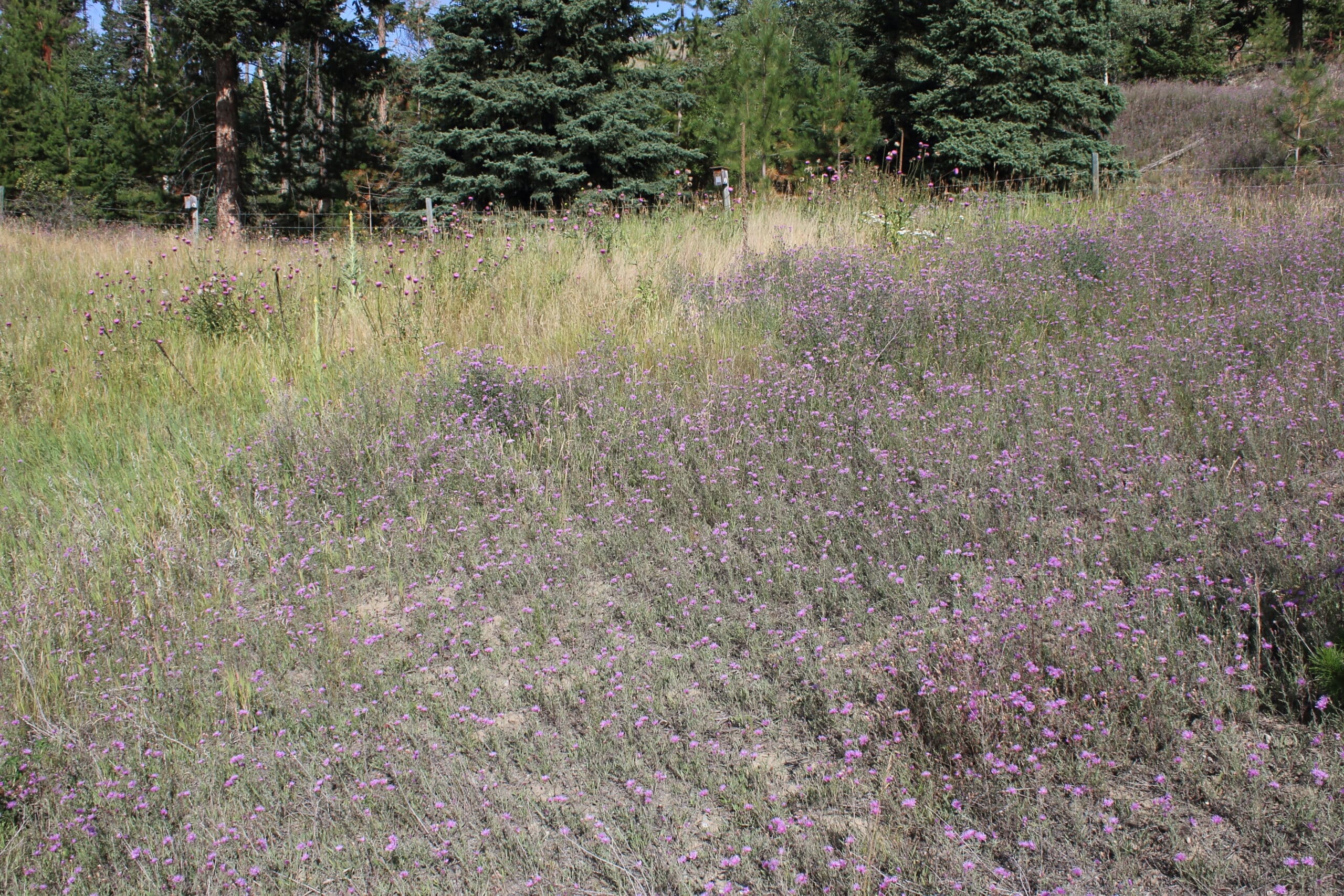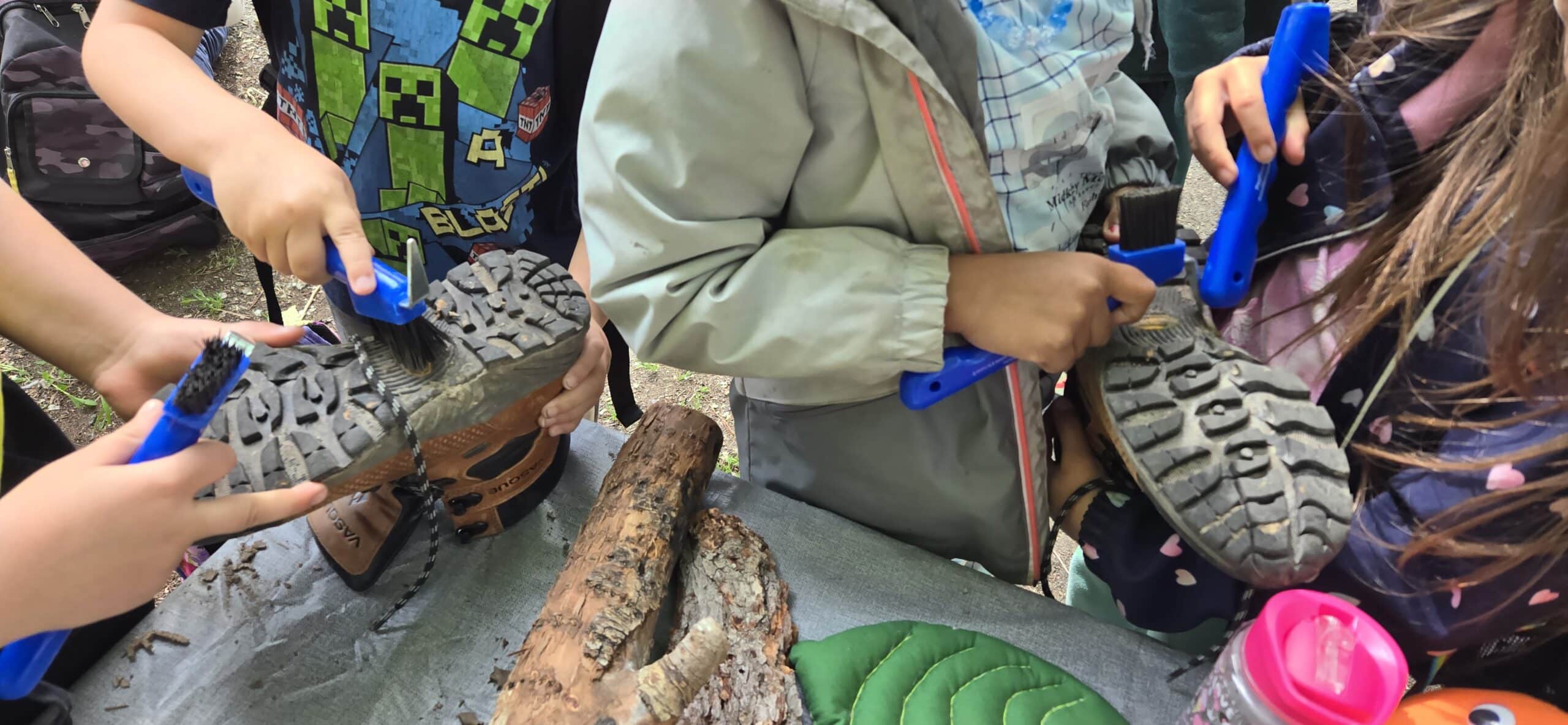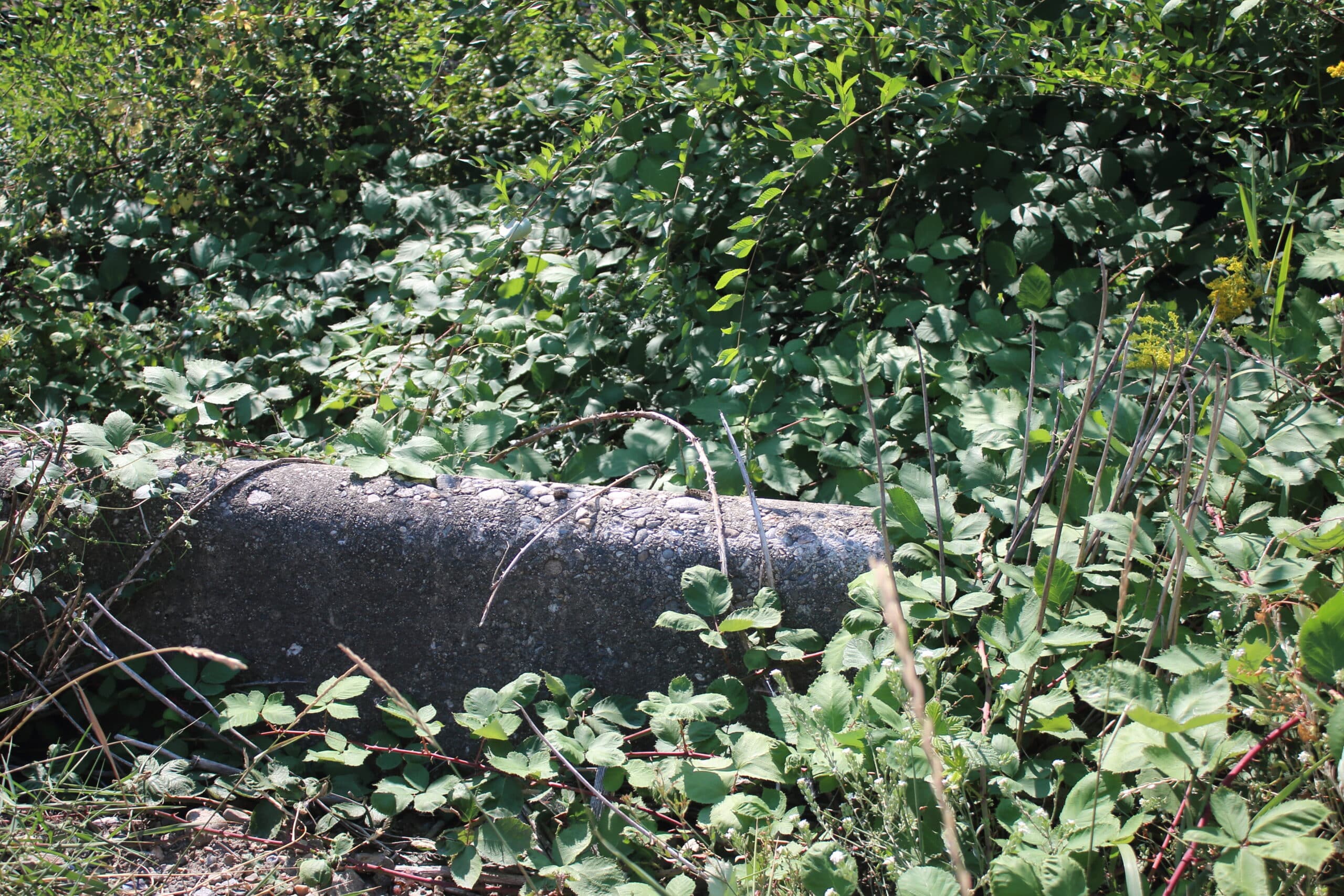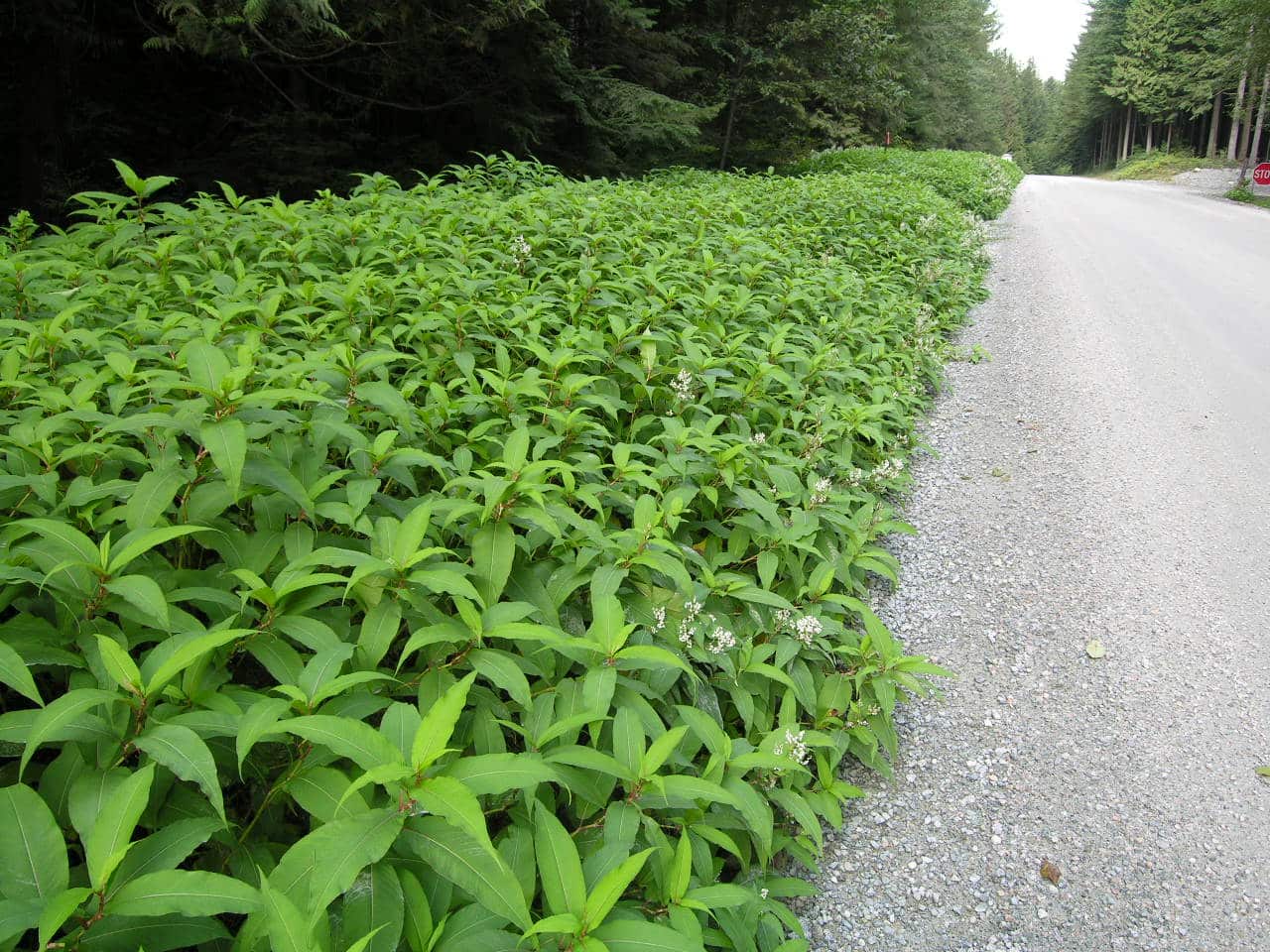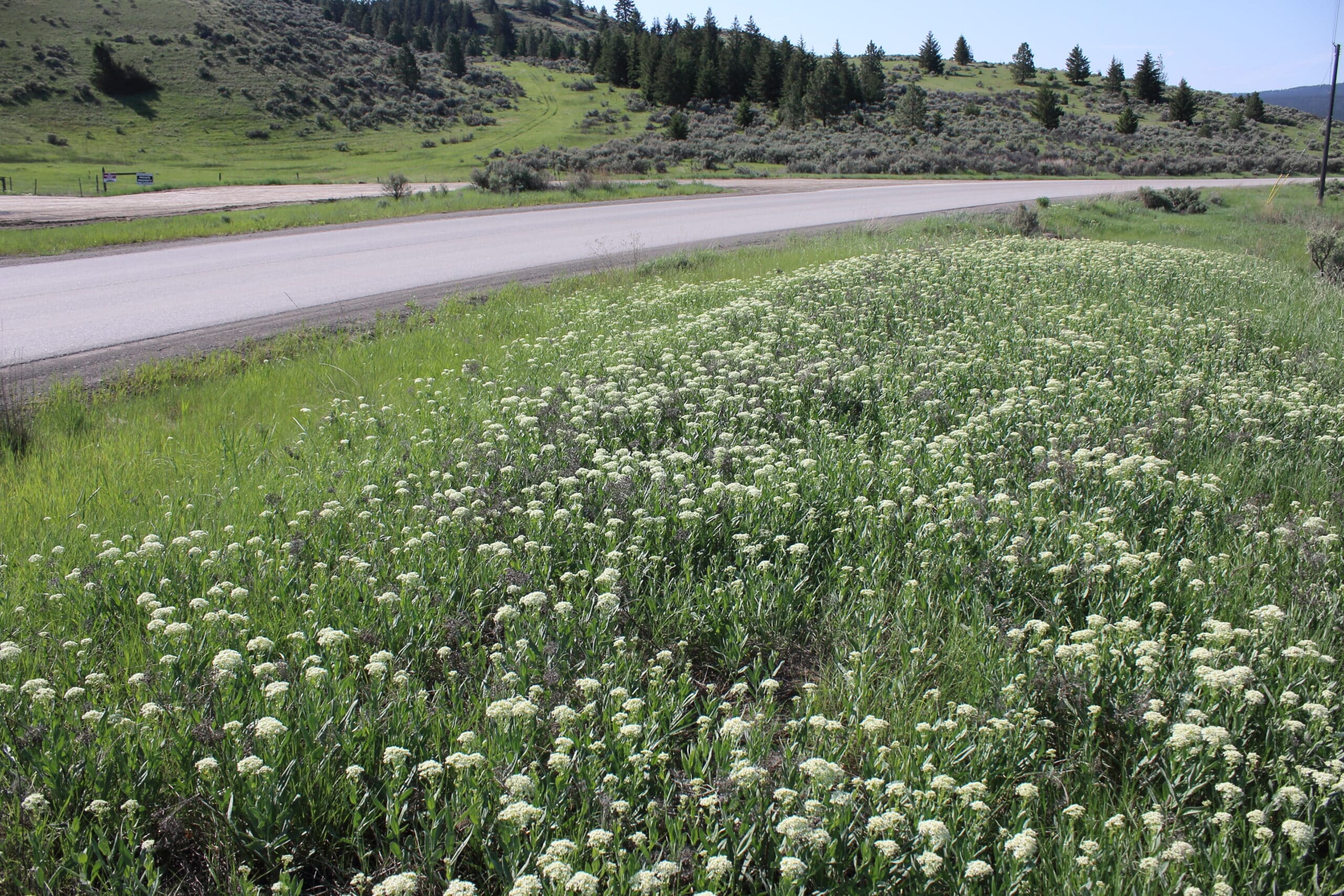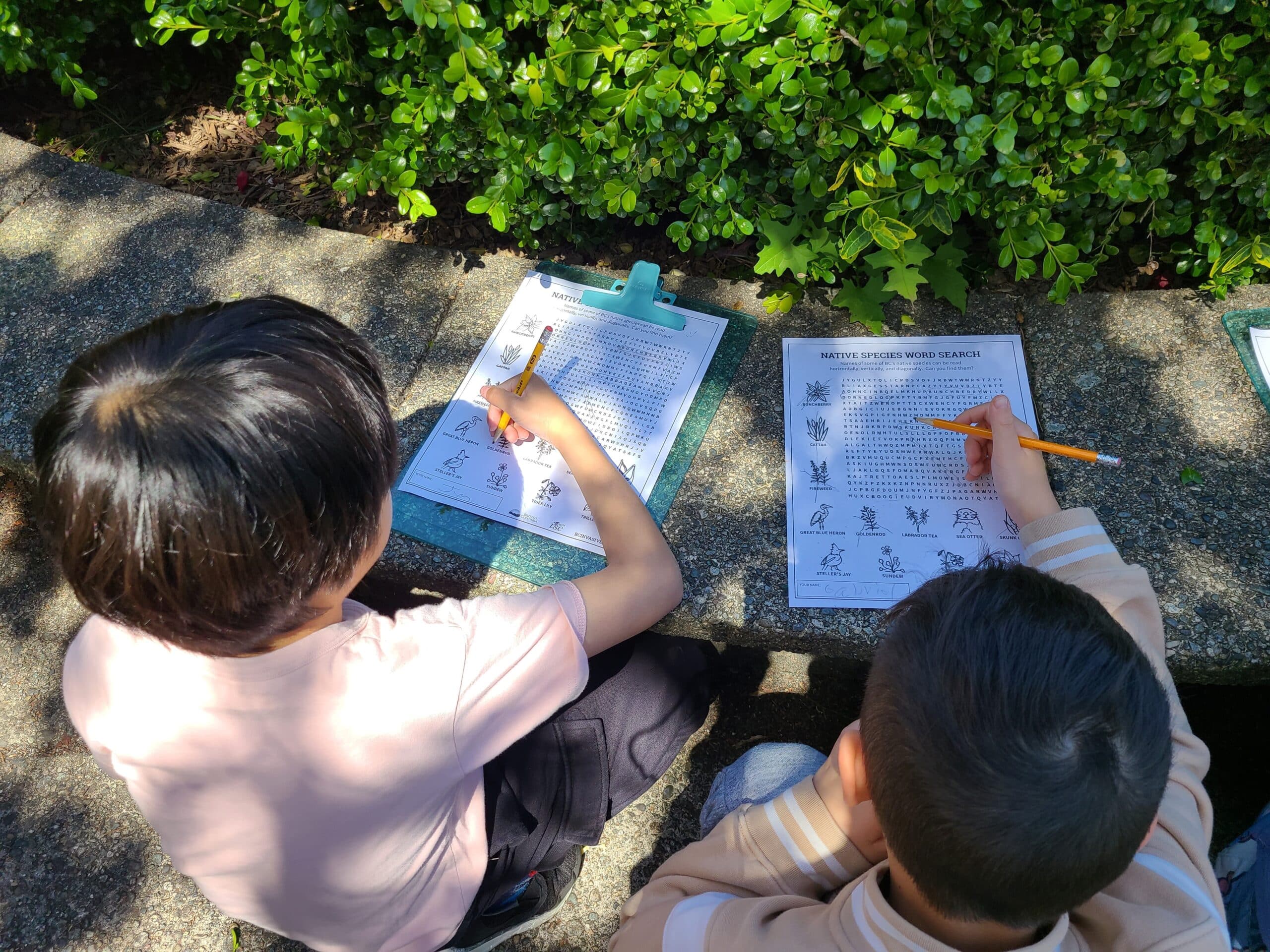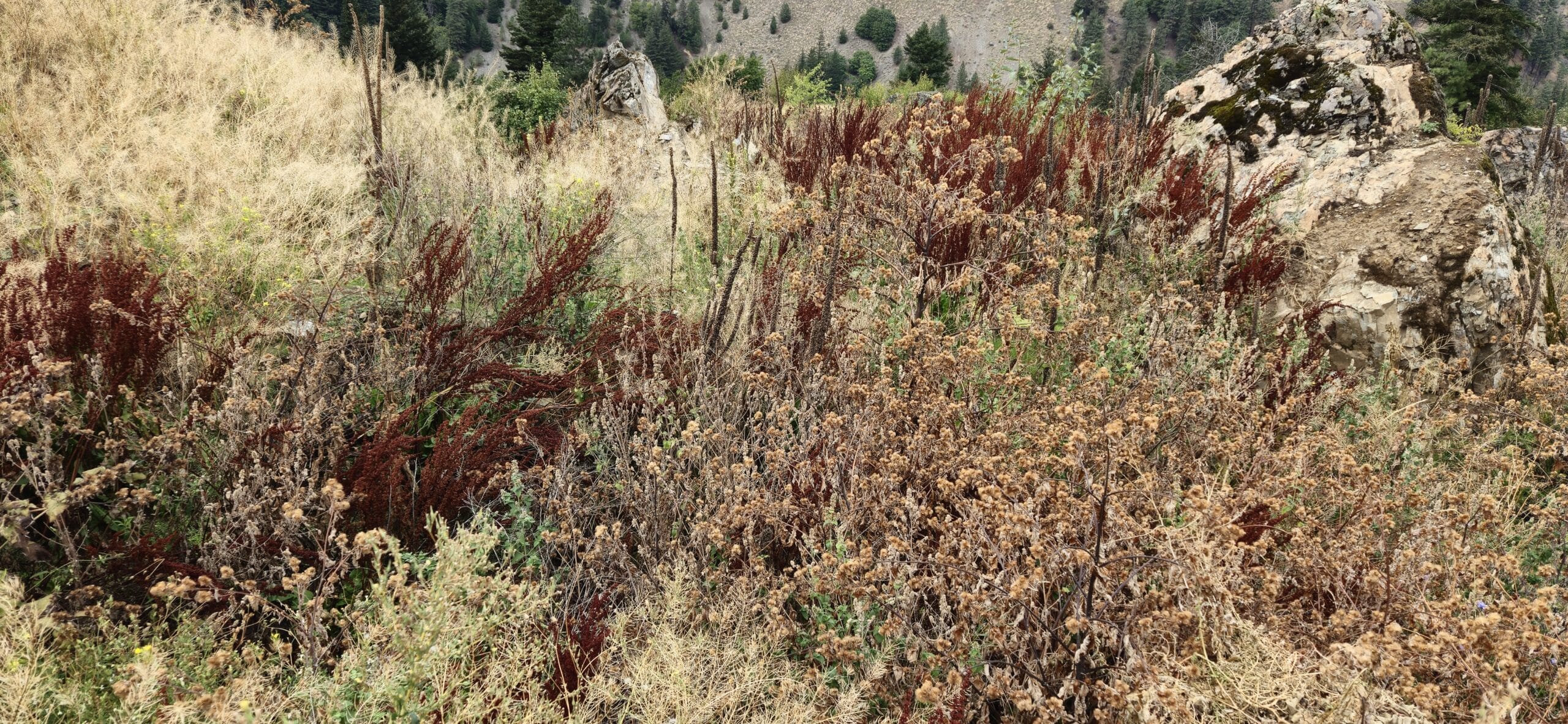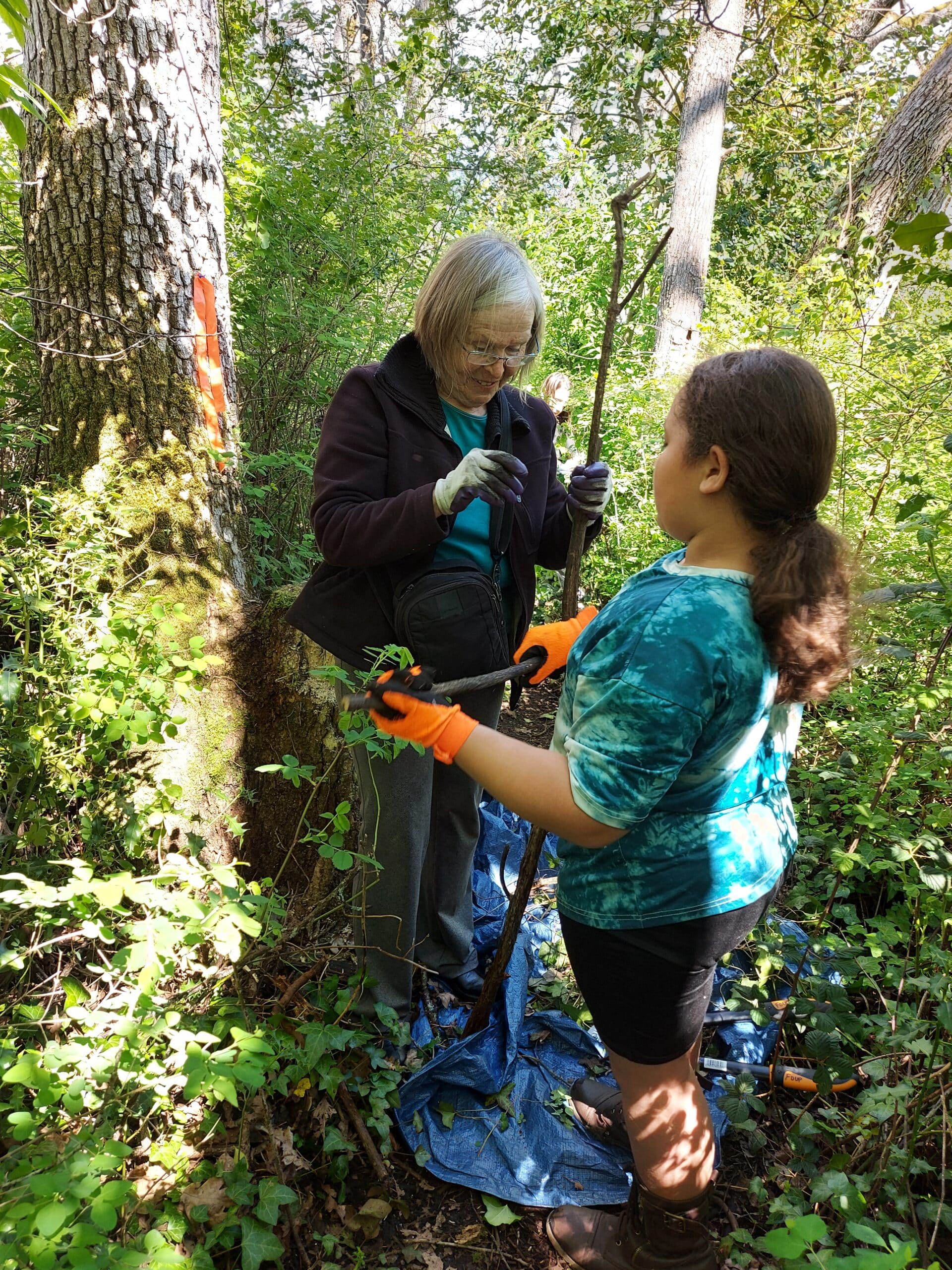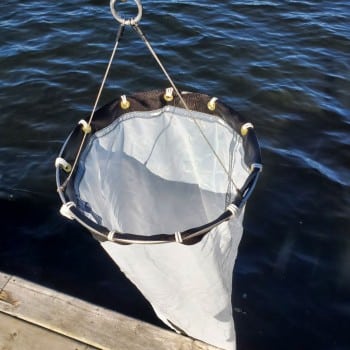
British Columbia remains free from invasive mussels, which have dramatically affected lakes across much of Canada and the US. This summer, with funding from the Habitat Conservation Trust Foundation, ISCBC was one of a group of organizations working to monitor BC’s lakes for the potential arrival of Quagga and Zebra mussels. ISCBC monitored 11 Cariboo lakes, providing samples to the provincial government for analysis and thankfully, no invasive mussels were found.
ISCBC outreach coordinator Ksenia Kolodka led the sampling efforts, with the help of ISCBC’s Job Creation Partnership team and volunteer contribution. Sampling was conducted at docks and boat launches in provincial parks and privately owned resorts. Locations with high volumes of water traffic were selected as they have a higher chance of becoming infested with invasive mussels.
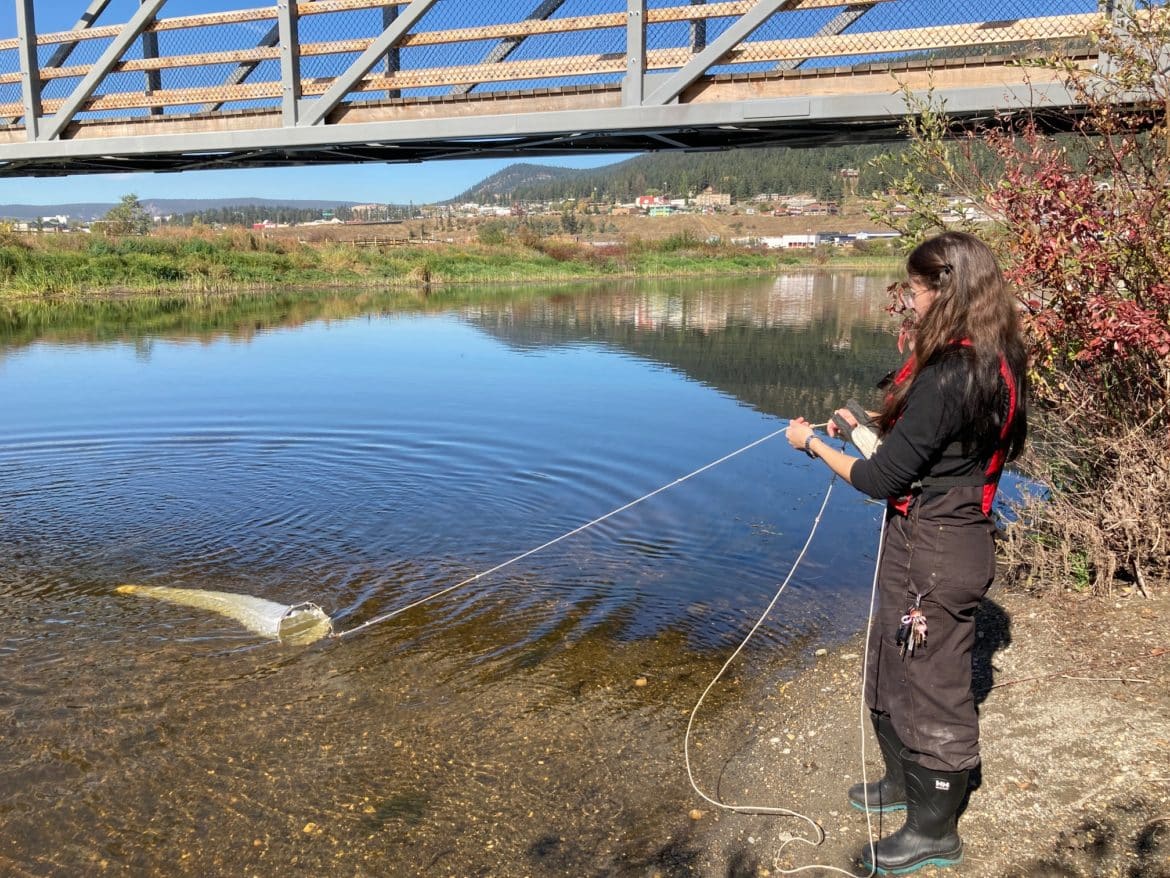
Photo: Monitoring at Scout Island, Williams Lake BC
Zebra (Dreissena polymorpha) and Quagga mussels (Dreissena rostriformis bugensis) are fingernail-sized, freshwater mollusks that can easily attach themselves to objects and other organisms. These invasive mussels clog water treatment pipes and power plants, disrupt ecosystems, and are very difficult to remove. Forget walking barefoot on beaches littered with their razor-sharp shells. Read more about Quagga and Zebra mussels.
Two tools are used to collect samples during invasive mussel monitoring. Plankton tow nets have a very fine mesh that stops juvenile Zebra or Quagga mussels passing through. Substrate samplers are plastic nets which are attached to a boat dock for the whole summer. If adult Zebra or Quagga mussels are present in the waterbody they will attach to the net.
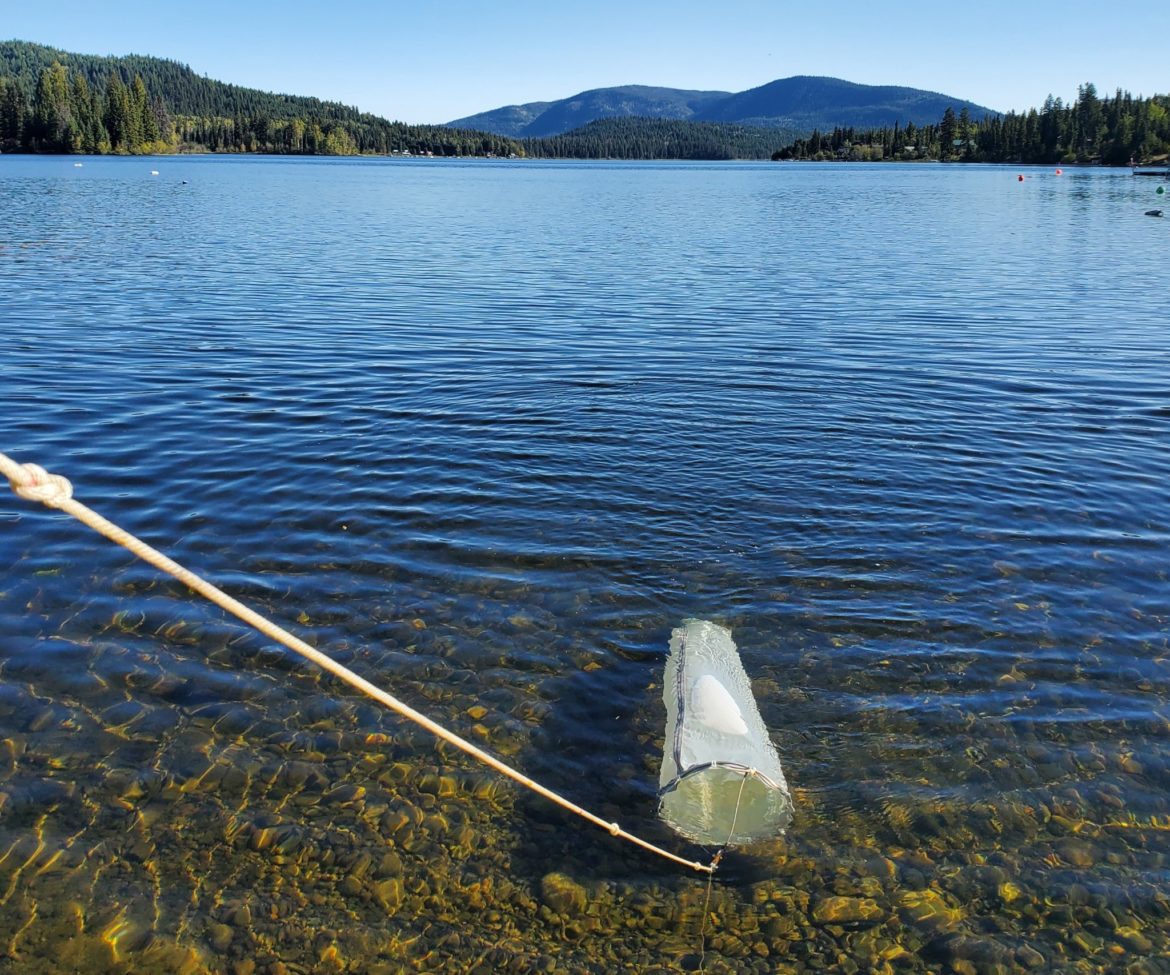
Photo: Mussel monitoring with a plankton tow net, Deka Lake BC
How can you help?
The public has an important role to play in the battle against invasive mussels. We can all help to prevent the spread of invasive species through our watercraft and gear by practicing Clean, Drain, Dry. Follow these three easy steps:
- Clean plants, animals and mud from your boat and gear
- Drain all water from your boat and gear onto land
- Dry all parts of your boat and gear completely
Please report ALL sightings of Zebra or Quagga mussels to the Report All Poachers and Polluters (RAPP) hotline: 1-877-952-7277
About the Clean Drain Dry program in BC:
The Canadian Council on Invasive Species is pleased to work in partnership with the Invasive Species Council of BC and funding from Fisheries and Oceans Canada in launching the Clean Drain Dry program in BC, as the foundation for a national program. The project aims to encourage boaters and aquatic recreationists, who play a critical role in protecting local watersheds from invasive species, to Clean, Drain, and Dry all boats and equipment. Over a three-year pilot term, resources, signage and a social and digital media campaign will be designed to shift the behaviour of boaters and aquatic recreationists to encourage the practice of Clean, Drain and Dry.
About the Invasive Species Council of BC:
ISCBC is dedicated to keeping our landscapes and communities free of invasive species. It provides a coordinated, province-wide approach to reducing the impact of invasive species in BC. ISCBC unites efforts across the province and collaborates with a variety of partners to develop unique solutions for the wide variety of ecosystems across BC.
About the Canadian Council on Invasive Species:
The Canadian Council on Invasive Species works collaboratively across jurisdictional boundaries to support actions and information that can help reduce the threat and impacts of invasive species. Invasive species councils, committees, and coalitions representing provinces and territories across Canada established this federal society to work together to reduce the impact of invasive species across the country.
Share


